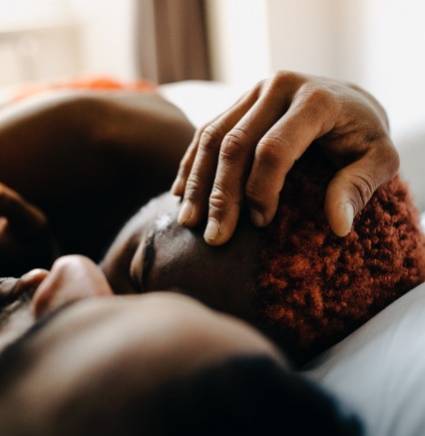Our Work
Disability & Sexual Violence
Women with disabilities global struggle for their right to intimacy
Vindicating persons with disabilities’ right to intimacy and sexual agency is key to full, holistic disability inclusion. Around the world, persons with disabilities, especially women and girls with disabilities, face multiple and aggravated violations of their right to intimacy, including an increased risk of sexual violence and a lack of access to reproductive healthcare. As this year's Sexual Violence Awareness Month comes to a close, it is vital to acknowledge women and girls with disabilities' heightened risk of sexual violence, since the risks they face are too often overlooked.
Women with disabilities throughout the world face a heightened risk of sexual violence and abuse compared to women without disabilities. The UN Committee on the Rights of Persons with Disabilities states that this risk can be attributed to widespread, harmful stereotypes “that infantilize women with disabilities” and “call into question their ability to make judgements,” as well as “perceptions of women with disabilities as being asexual, or hypersexual.” Some women with disabilities are at heightened risk of sexual violence, including deafblind women and those with intellectual disabilities. As the UN Committee on the Elimination of Discrimination against Women (CEDAW) explains, in many states around the world legislation addressing this gender-based violence “is non-existent, inadequate or poorly implemented,” thereby leaving women with disabilities with few options to seek legal justice after facing sexual violence.
Two 2010 reports on the experiences of women with disabilities in Bangladesh by former HPOD interns describe stubbornly persistent themes and patterns. Tasnoba Nusrat identified a common theme among the women she interviewed: many had little power to govern their own lives. Women often indicated they rarely had agency in deciding what legal steps to take after experiencing violence. Moreover, the lack of sexual education among women with disabilities in Bangladesh compounded their feelings of disempowerment.1 Katherine Warren similarly found that systemic barriers, including limited legal education, inaccessible courts, and corruption, weakened violence survivors’ avenues for justice.2 These factors leave many women with disabilities in Bangladesh with fewer available means, and less motivation, to pursue legal action after an assault.
A more recent study exploring sexual violence among women with disabilities in Zimbabwe found similar, disturbing themes. There, “[w]omen with disabilities face additional and significant barriers after sexual abuse when seeking to report … to the police or when seeking help from … service providers.” Researchers discerned six main barriers faced by women with disabilities who survive sexual violence when seeking services after abuse: long distances; physical barriers in police, court, and health care settings; communication barriers; gender issues; lack of confidence in service providers; and lack of resources. Crucially, a survivor’s gender and disability often lead service providers, like police and doctors, to dismiss the survivor as “not credible.”
Other survivors with disabilities are deemed to lack the capacity to make decisions about their reproductive health. For example, the 2009 case Suchita Srivastava v. Chandigarh Administration involved a state-run institution’s attempt to prevent a woman with intellectual disabilities from carrying her pregnancy to term after being raped. The Delhi High Court permitted the local government to terminate her pregnancy against her wishes, because the court believed Ms. Srivastava was “unable to appreciate and understand the consequences of her own future and that of the child she is bearing” due to her disability. Although the Supreme Court of India ultimately overruled the High Court, vindicating her right to make her own decisions about her reproductive health, the facts underscore the uphill battle women and girls with disabilities in India and throughout the world face simply to be recognized as individuals deserving of equal rights and protections.
In particular, such attitudes about the capacity of women with disabilities are sometimes codified in formal legal capacity restrictions. As HPOD’s Director of Advocacy Director Hezzy Smith has observed:
“In practice, legal capacity restrictions have exposed persons with intellectual and psychosocial disabilities to forced abortion and sterilization, forced medication, involuntary hospitalization, involuntary institutionalization, disenfranchisement, ineligibility for adoption or marriage, forfeiture of property or child custody rights, and more.”3
Such restrictions can prevent women with disabilities who are subject to guardianship from exercising their right to reproductive health care, and from testifying in court when seeking legal justice after assault. Thus, the CEDAW Committee has called for repealing “guardianship laws that deprive women of legal capacity or restrict the ability of women with disabilities to testify in court.” While insufficient to root out sexual violence completely, such reforms would empower women with disabilities to seek the care they need after assault, rather than having solutions prescribed to them by others, often against their wishes.
Mackenzie Saunders is a Class of 2025 J.D. Candidate at Harvard Law School.





